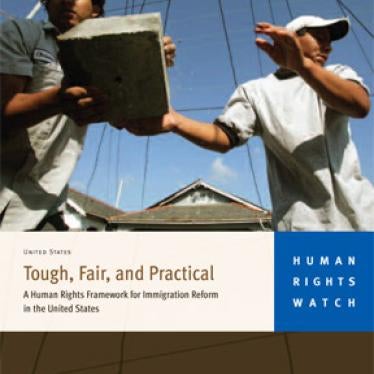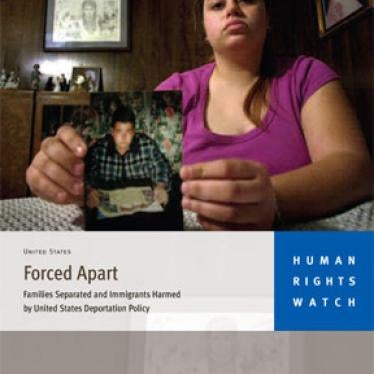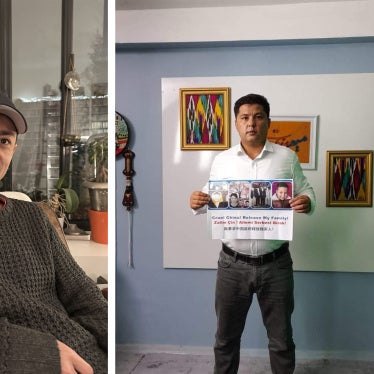(Washington, DC) – The Obama administration’s decision to suspend deportation proceedings for non-citizens who are not security risks or convicted criminals is an important step to a fairer approach to US immigration enforcement policy, Human Rights Watch said today.
“By weeding out low-priority cases, President Obama is injecting some rationality into a flawed US immigration enforcement policy,” said Antonio Ginatta, US advocacy director at Human Rights Watch. “Considering a person’s ties and contributions to the US before making a final deportation decision is nothing more than common sense.”
In a teleconference on August 18, 2011, the Department of Homeland Security (DHS) announced a plan to undertake a case-by-case review of 300,000 pending deportations to “clear out” low-priority cases. Cases that qualify under the announced review would be administratively closed, suspending the deportation. The immigrant would then have the opportunity to apply for temporary work authorization.
Low-priority cases would include immigrants who were brought to the United States when they were children. The case-by-case review would also look at an immigrant’s community ties, family relationships, and military record. Administration officials also said that spouses in same-sex relationships will qualify as having family ties under the review.
Those who benefit from the policy change would not obtain legal status, however, because any adjustment of status would require action by Congress.
Human Rights Watch had called for an end to the US “one size fits all” approach to deportations for several years. Prior to this policy change, a child brought to the US as an infant would have virtually no opportunity to offer a defense in a deportation proceeding.
This shift in policy brings the US closer to countries that consider a person’s positive attachments to the country of residence in deportation decisions. Human Rights Watch research has found that the laws and practices of 61 countries around the world offer non-citizens an opportunity to raise family unity concerns, proportionality, ties to a particular country, and other human rights considerations prior to deportation in seeking to reverse a deportation order.
One shortcoming of the announced changes is that they lack clarity about whether any criminal conviction would disqualify an immigrant from having their deportation suspended, Human Rights Watch said. Many immigrants currently in deportation proceedings have been convicted of minor traffic offenses or immigration-related violations like “illegal entry.” In determining what constitutes a low priority case, DHS should differentiate between these minor, nonviolent crimes and more serious offenses. DHS should also include in the low-priority definition cases involving long-term legal permanent residents who have committed a crime in the distant past.
“The Obama administration has taken an important step by putting immigration reform back on the nation’s agenda,” Ginatta said. “Congress needs to build on this step by responsibly engaging on this issue when it returns from its recess.”








